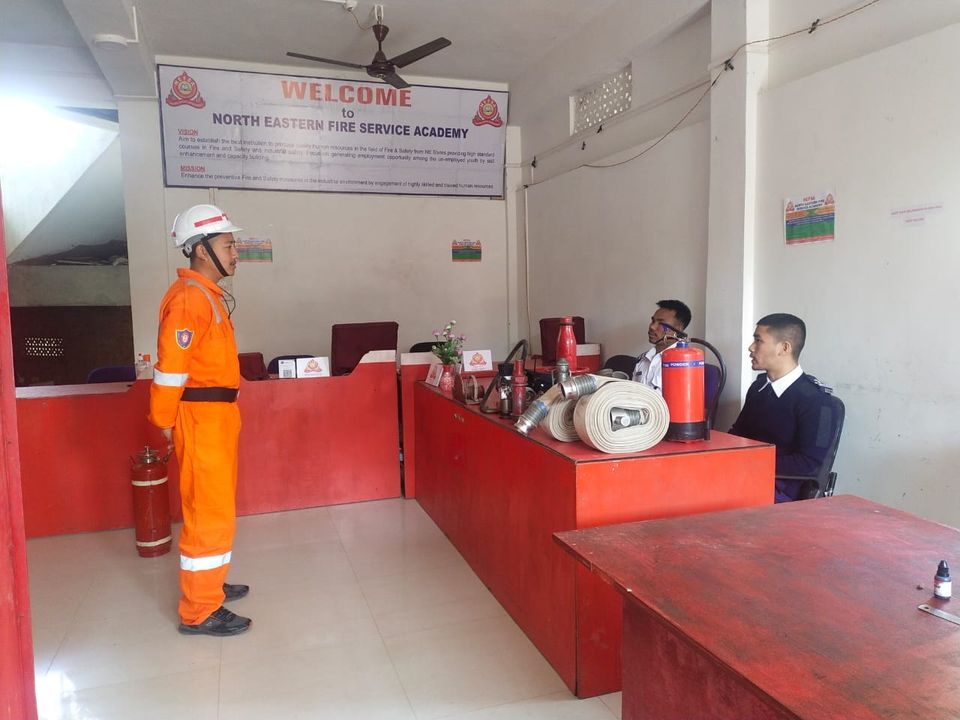Young adults moving into dorms, hostels, PGs or shared flats face a lot of new freedoms — and new risks. Electrical hazards are one of the leading causes of residential fire incidents worldwide, and many student housing fires begin with overloaded outlets, faulty cords, or unattended cooking. This NEFSA guide gives clear, research-backed precautions students can put into practice today to reduce the risk of electrical fires and stay safe.
Why students need to pay attention
Residential electrical fires remain common and costly. In recent national estimates, tens of thousands of residential electrical-malfunction fires occur annually, causing deaths, injuries and large property loss. In India, electrical equipment and short circuits are frequently cited in recent fire reports and local news coverage — making electrical safety essential for students living in dense, shared housing.
Top precautions every student must know
1. Don’t overload outlets or power strips
Plugging many devices into one outlet or daisy-chaining power strips can cause overheating and sparks. Use one high-quality surge protector per multi-device setup and avoid powering high-wattage appliances (like heaters) from the same strip. If an outlet or power strip feels warm to the touch, unplug it and report it.
2. Avoid permanent use of extension cords
Extension cords are for temporary use only. Running cords under rugs, through doorways, or pinning them where they can be crushed increases wear and risk of insulation failure — a frequent cause of fires. If you need more outlets, ask housing management to install additional receptacles.
3. Be cautious with space heaters and cooking appliances
Many dorms ban or restrict portable heaters and certain kitchen appliances for good reason. Space heaters should always be plugged directly into a wall outlet (never an extension cord), have tip-over and overheat protection, and be kept at least 3 feet away from flammable materials. Never leave cooking unattended — unattended cookware is a top cause of dorm fires.
4. Inspect cords and devices regularly
Frayed cords, cracked plugs, discolored outlets, sparking or buzzing sounds are warning signs. Replace or stop using damaged cords and appliances immediately. Don’t try to force a three-prong plug into a two-prong outlet — that removes the grounding protection and increases risk.
5. Know and respect safe charging practices
Overnight charging of phones and laptops on soft surfaces (beds, couches) can trap heat. Use manufacturer-approved chargers, place devices on hard surfaces while charging, and avoid charging devices under pillows or blankets. Unplug chargers when not in use.
6. Learn where the circuit breaker and fire extinguishers are
In an electrical emergency, knowing how to cut power quickly can stop a fire from spreading. Locate the room/building circuit breaker and learn how to turn off the power to your space safely. Also know the location and correct use of a Class C-rated or multi-purpose (ABC) extinguisher for electrical fires — never use water on electrical fires.
7. Install and test smoke alarms; replace batteries
Smoke alarms save lives. If your room or suite doesn’t have a working alarm, report it to housing management immediately. Test alarms monthly and replace batteries at least once a year (or sooner if chirping).
8. Practice safe DIY and report illegal wiring
Avoid unlicensed electrical work. Many hazards stem from makeshift wiring, illegal modifications, or amateur repairs. If you find exposed wires, overloaded distribution boxes, or suspicious wiring, report to building management or local electricians — don’t attempt to fix it yourself.
9. Keep escape routes clear and plan an evacuation
Even a small electrical fire can produce smoke quickly. Keep corridors and exits unobstructed, map two escape routes from your room, and practice a quick evacuation plan with roommates. During fire drills, treat them as real — they train instincts that count. NFPA
Quick student-friendly checklist (print & pin)
-
Use only one surge protector; avoid daisy-chaining.
-
Don’t run cords under rugs or through doorways.
-
Plug space heaters directly into wall; turn off when away.
-
Replace frayed cords and damaged plugs immediately.
-
Charge devices on hard surfaces; avoid overnight charging under pillows.
-
Locate circuit breaker and nearest fire extinguisher.
-
Test smoke alarms monthly; change batteries yearly.
-
Keep exits and hallways clear.
-
Report unsafe wiring to housing or authorities.
(If you want, NEFSA can convert this into a printable PDF checklist you can pin on your dorm room door — tell us “PDF checklist” and we’ll prepare it.)
What to do if you discover an electrical fire
-
If small and safe: unplug power at the breaker if possible, and use an ABC/Class C extinguisher — never water on live electrical equipment.
-
If smoke or fire spreads: evacuate immediately, close doors behind you to slow spread, and call local emergency services.
-
Afterwards: report the incident, get electrical inspections done, and don’t re-enter until authorities declare the area safe.
Why prevention matters (short evidence-backed note)
Electrical malfunctions cause a substantial share of residential fires and related losses globally. Simple habits not overloading outlets, avoiding damaged cords, correct heater use, and functioning smoke alarms significantly reduce the risk. For students living in close quarters, small changes in behaviour and a little awareness translate into large safety gains.
NEFSA’s final word
As NEFSA, our mission is to equip learners students and community members alike — with practical skills that prevent accidents and save lives. Electrical safety is not complicated: it’s about consistent good habits, basic checks, and knowing how to act. Share this guide with roommates, batchmates and housing staff safety multiplies when everyone participates.
Contact us today to know more about admissions, batch schedules, and course details.
Visit: www.nefsaindia.com
Location: Dibrugarh, Assam
For More Blogs:- Click here







